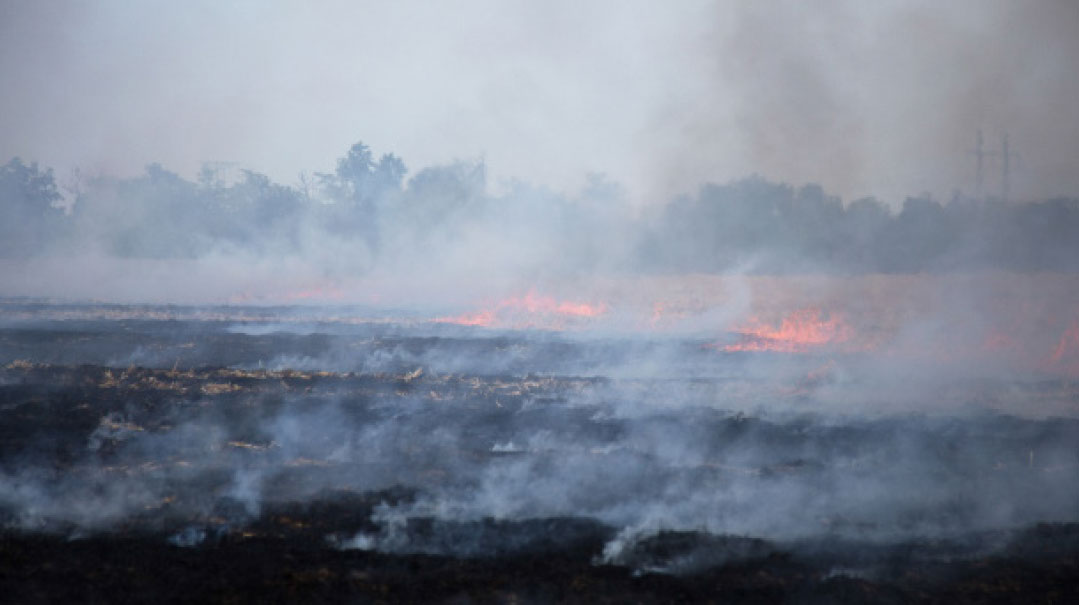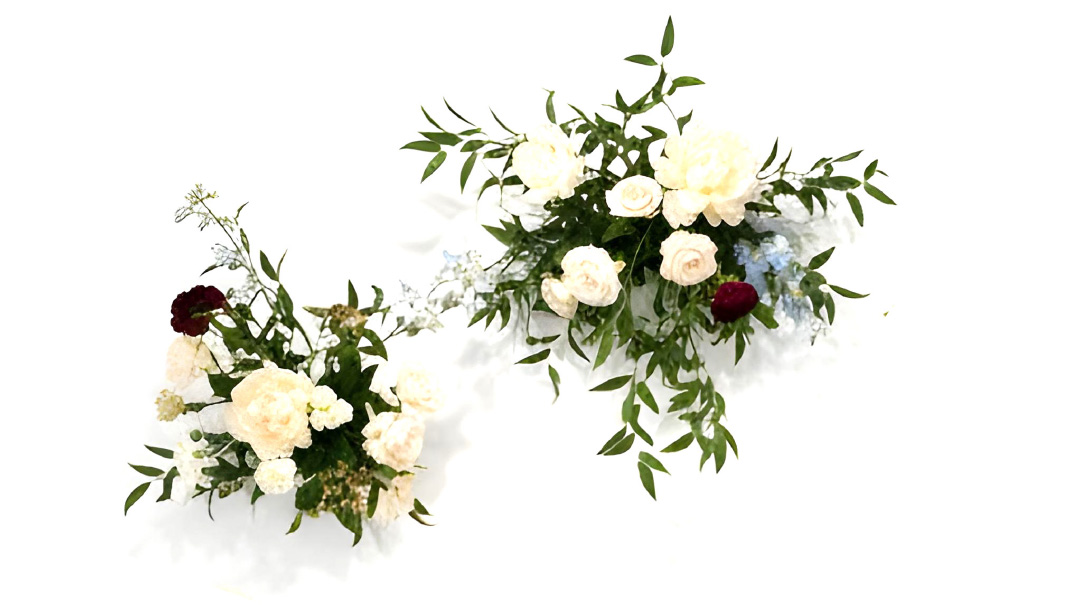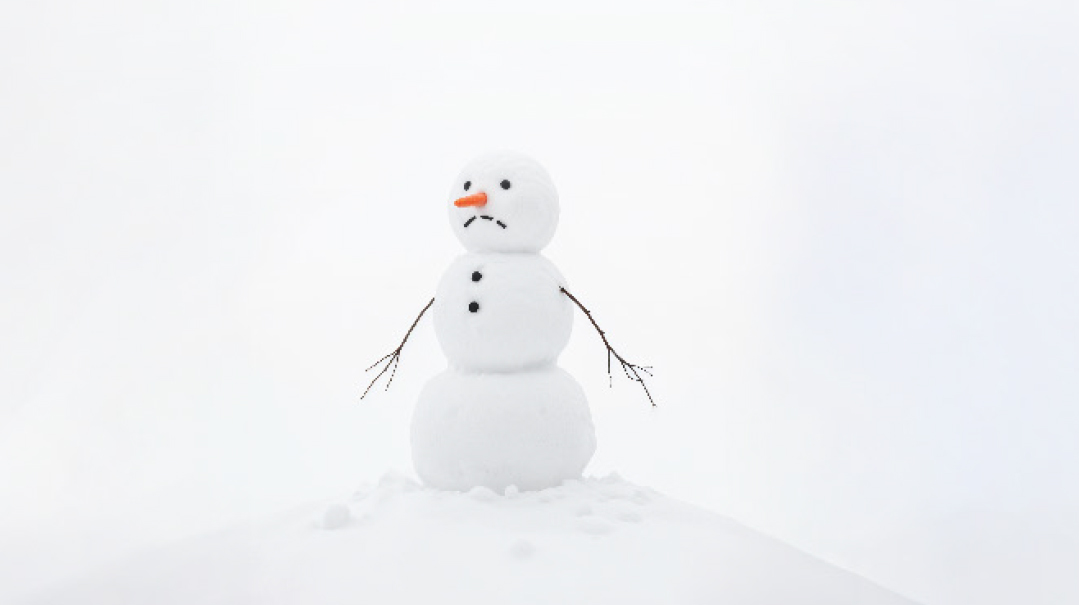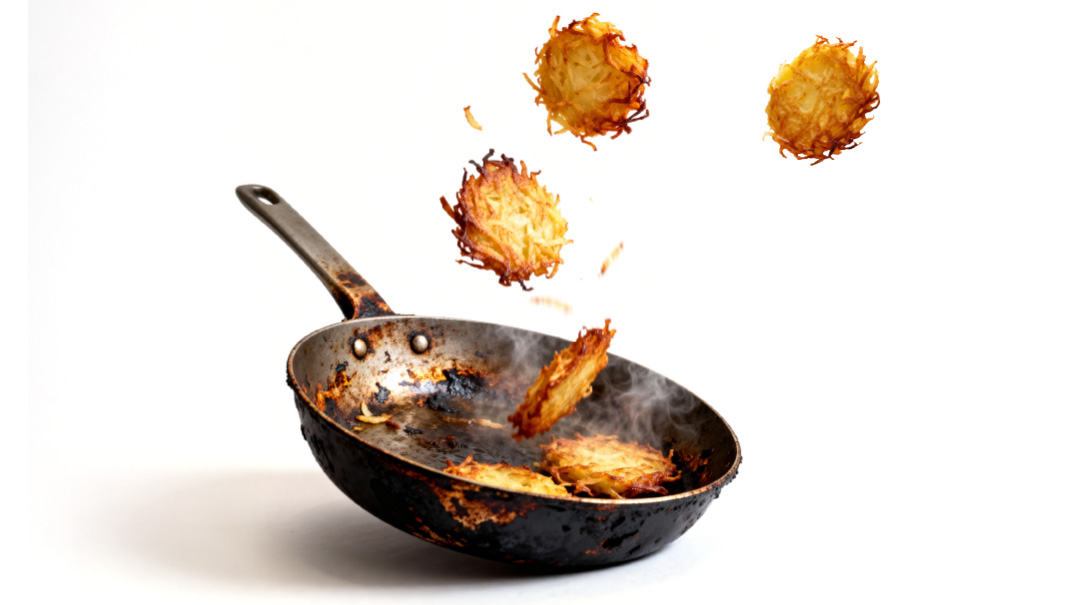Hidden Spaces
| July 22, 2020I am scared, so scared, to enter that place of pain. The place that all year, I work to scrape off of myself

It seemed that, like everything else in camp, Tishah B’Av had somehow morphed into a competition, with extra points if you got a staff member to cry. Especially at night.
Under the dome of darkness we sat, the brightly shining stars a dramatic background to our heartrending tales. Who would win the prize this year for telling the most tear-inducing story? A sister off-the-derech, a four-year-old neighbor suffering from cancer, grandparents’ Holocaust accounts?
Girls stood up, with a bizarre sense of pride, as the words spilled forth from their mouths like wine from a goblet. Sadness rippled among the campers sitting and mourning. It felt right that we should cry, and cry, and cry, over all the tzaros plaguing Klal Yisrael. We mourned, individually and communally. Ayekah? — Where are You, Hashem?
And now, I find myself, years and years later, on the eve of Tishah B’Av, thinking back to those days of mourning... but not with wistfulness or nostalgia, only with a dread of the pain. I am edgy, nervous, as the sun sinks lower behind the horizon and I find myself sinking deeper and deeper into myself. My skin crawls, there is a heaviness in my chest; I am anxious for Tishah B’Av to come and dreading it just the same.
I am scared, so scared, to enter that place of pain. The place that all year, I work to scrape off of myself, the layer of shrink wrap that keeps clinging back to me.
Noticing others’ suffering comes naturally to me. I walk into a simchah and automatically see the stress, the furtive whispers, the troubles people hoard inside themselves like hidden merchandise. It’s as though I have no emotional skin; I am constantly bruised, certain that the black-and-blue patterns will rise through my skin like a bubbling volcano. And try as I might to avoid it, I keep going back to those thoughts, picking at the flakes like edges of a scab, causing myself more injury.
I work hard — very hard — to focus on the positive, on the light, on seeing the good in This World. It is a challenge. I have grown so accustomed to tunnel vision: pain pain pain. I claw myself out of the holes I fall into, dirt embedded in my nails. I am bloody, I am hurt, I am whole, I try again to realign my vision, train my mind to look up toward the sun instead of at the shadows surrounding me like wild predators.
The men rush home to their seudas hamafsekes, past each other they flow, fish toward a net, a macabre choreography. Sheep to the slaughter. Tishah B’Av descends, its woeful song echoing faintly in the streets. A ghostly smoke signal alerts everyone of its arrival.
I deafen myself to the whisper of the megillah reading blowing through the air, a haunting sonata that seeps beneath the skin, so warm it burns. I look away from the grim faces, down-turned heads.
I involve myself with the children and their laughter, petty problems, she got more milk than I did, think of suckling children whose mothers’ milk has run dry from famine. No milk, no milk. I pour more milk into each child’s cup, as if my generosity can travel back in time.
It is crashing around me, everything triggers memories passed from father to son, mother to daughter. Crusades, holocausts, churban. I must run, run, just like my grandparents fled from the Romans, the Greeks, the Germans, run from the webs of despair that wish to engulf me. It seems on Tishah B’Av, engulf me they must.
I hide those parts from myself, from others, wishing them away. Go away, far, far away, where no harm can reach, new countries, always new countries, never too long as a guest.
I am hesitant — no, I am petrified — to willingly put myself into that headspace, to take a hard look at galus, the gaunt faces of physical (living skeletons walking out of the camps) and spiritual dearth.
How can I sit in that hotbed of emotion, bathe myself in the memories of a million bloody battles we’ve fought and lost? How can I willingly descend into the rabbit hole, scratching at anything on the way down to anchor myself (they begged, they pleaded, desperation for salvation driving them to madness), to prevent the inevitable fall?
I don’t want to, I can’t. I’m a child, I’m hungry, I’m scared. Mommy?
On Tishah B’Av, I sit in a fetal position.
I cry, a slow, long wail.
I mourn, wracked with a million whys.
And at chatzos, I get up from the floor, arise at Yeshayahu’s behest, Kumi ori.
I think about seeds planted in desolate, charred land, the beauty inherent in fire-fallow cultivation. Beneath the burned fields, lies potential for growth.
I read about Rabi Akiva, who, upon seeing the utter desecration of holiness, laughed. Laughed, like the laughter of one million children whose laughter is eternally childlike. But laugh he did, for he saw something few others can.
Weary women we are, so accustomed to this life that we no longer wish for another. We have become deafened by the cries, blinded by the searing pain. Paralyzed by stories, so many awful stories, traded like poker chips until they are nothing more than the dealt hand in front of us. It hurts, it hurts that it doesn’t hurt, that the pain has become the norm.
We lack the depth of vision Rabi Akiva possessed. Only one who has experienced the depths of grief can reach the ecstasy of joy. He could recognize the potential within the pain.
Music is appreciated in every pause; in every space between the black notes is the yearning to be enveloped yet again. The longing is there, our nation’s desire for something different pulsates through this achingly long galus.
On Shabbas Nachamu, I am comforted by Hashem’s words, “Ki malah tzivah, ki nirtzah avonah…” The pain is not an end unto itself, it is but a stepping stone from arid lands to blossoming buds.
I raise my muddied arms to the heavens, scratched and broken but whole, proof of my victory over the depths of pain, begging for a response.
A father’s voice caresses, His assurances are phrases to tattoo like numbers on flesh on heart and mind: No, mamaleh, no. I am here, my zeeskeit. Tomorrow will be a new day.
Nachamu ami.
(Originally featured in Family First, Issue 702)
Oops! We could not locate your form.













